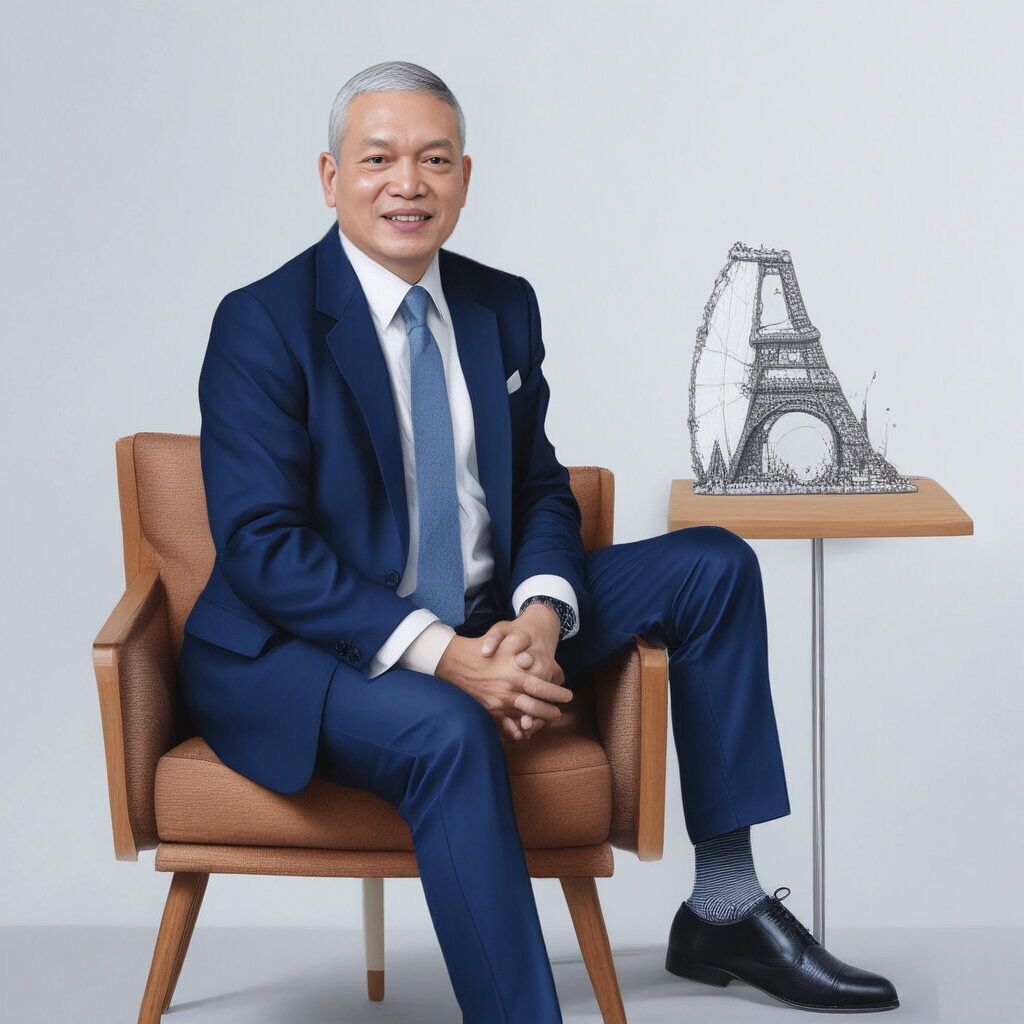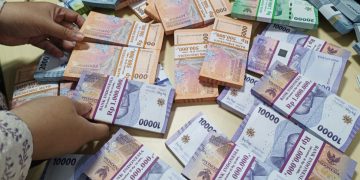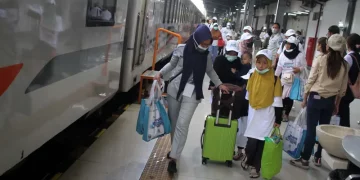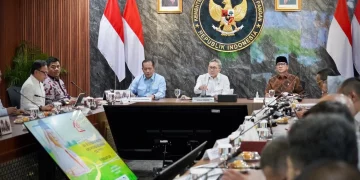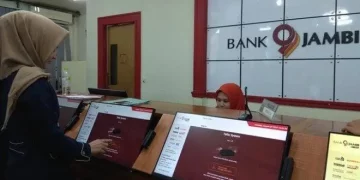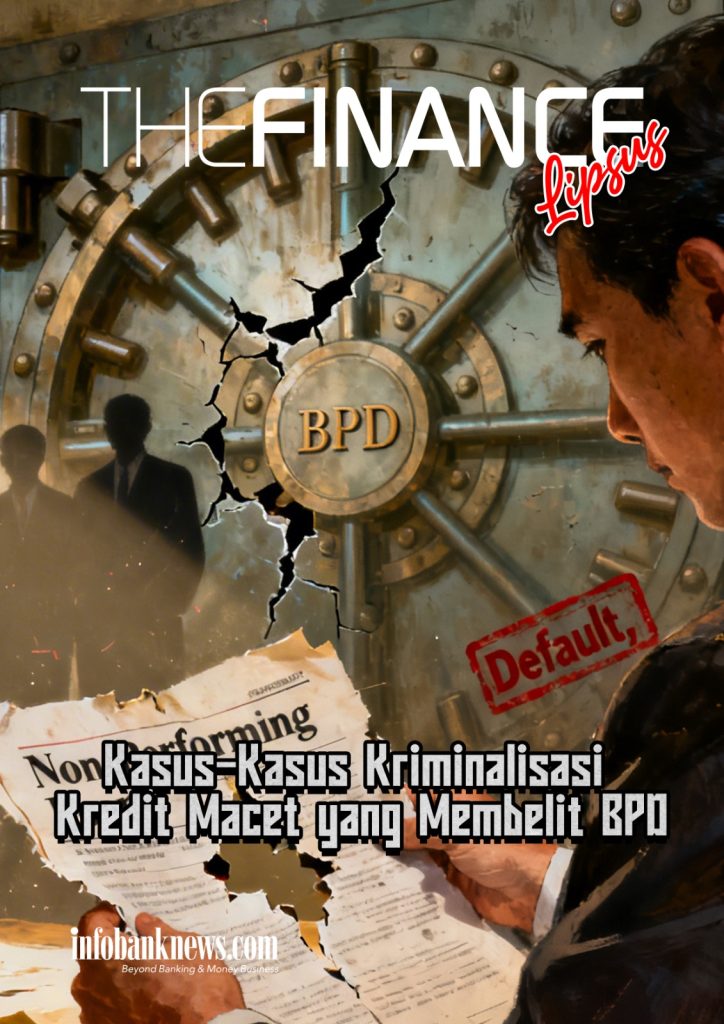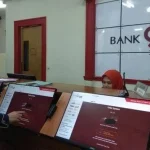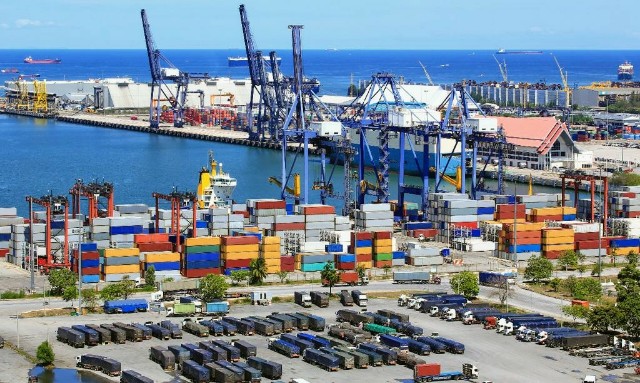By: Eko B. Supriyanto, Chairman of Infobank Media Group
Jakarta – Prabowo Subianto’s administration has not yet completed 100 days. However, several programs have begun to appear, one of which is the free nutritious meal program (MBG). However, there is homework for almost 46 years of Indonesia’s economic journey, namely the problem of inequality, budget leakage, corruption and the deepening of the financial sector, which has not remained an important unanswered issue.
The Soehartonomic, Habibienomic, Abdurahmanomic, Meganomic, Yudhoyonomic, Jokowinomic eras still leave these three important problems, inequality, budget leakage and corruption and the shallowness of the financial sector – so that it is easily shaken if there is a slight crisis shock from the global market. In fact, in the wake of Jokowinomic the burden has increased with a ballooning debt burden.
President Prabowo’s speech at the inauguration was remarkable. There was great optimism in building Indonesia. It is not easy to achieve 8 percent growth with a fiscal legacy drowning in debt “mud”. Fiscal constraints have led to a lot of “acrobatics” to run the government.
When hearing Prabowo’s speech, people’s expectations were very high. Prabowonomic, which Infobank translates as the middle ground of liberalization and socialism. Or, in short, encouraging the big private sector to grow but not abandoning small businesses. Energy and food independence is the way to go.
However, there is a little doubt when names like “KW3” appear in the Red and White Cabinet, in addition to the “Obesity” Cabinet – too fat with new ministries, the effectiveness of bureaucracy is getting longer and overlapping. For example, as we approach 100 days, there are still ministries fighting over budget and nomenclature.
Prabowo’s tough job is to ensure that his vision can be implemented by his aides. Not just the wishes of Mr. President, which are often spoken by his ministers, but concrete actions on policies that will be taken or taken. For example, regarding the construction of 3 million houses per year, or 15 million houses over 5 years, how to start and what policies will be taken.
Read also : Government Draws Debt of Rp556.6 Trillion Through 2024 Debt Legacy, Heavy!
Meanwhile, the country’s financial burden is also heavy. The current state of the country’s finances, paying debt interest with new debt. It’s like a ponzi scheme. In 2025, the Government again attracted foreign debt of Rp128.1 trillion, or 96.1 percent of Rp133.3 trillion. This was done in the context of debt financing in the 2025 State Budget. Although the ratio of loans to Gross Domestic Product (GDP) is moderate at 38.68 percent. However, what needs to be considered is the liquidity of state finances, or the matter of cash flow. According to Infobank Research Bureau records, the total debt of Indonesia is IDR 8,338 trillion.
While the debt due in 2025 reached Rp800.33 trillion, an increase of almost 2 times which amounted to Rp434.29 trillion. Meanwhile, this year the burden on the state budget to pay debt interest is Rp434.29 trillion. If the deficit is widened to 2.45-2.82 percent, the debt interest burden could reach Rp600 trillion.
If you look at the amount of issuance of Government Securities (SUN) – which is associated with the amount of maturing debt, and loan interest, it is certain that to pay by issuing new debt. Digging holes cover holes. This is not a problem if there is stability, such as SUN buyers. However, it also needs to be considered regarding the amount of yield, which is certainly heavier.
The 12 percent increase in Value Added Tax (VAT), even for luxury goods, may make the government appear selfish and want to secure state finances from debt pressures and government programs. A number of ministries are also requesting budgets. A fat bureaucracy does not guarantee zero leakage. Nomenclature that is still tug-of-war makes government work ineffective.
If you use the approach of Soemitro Djojohadikusumo, the Indonesian economic scholar about the Icremental Capital Output Ratio (ICOR) in the late 1980s. Economic inefficiency can be seen from ICOR, which according to data processed by the Infobank Research Bureau reached 6.9 in 2023. In 2000-2024 it reached 5.7. From year to year, ICOR continues to rise. This means that the higher the ICOR the worse, and inefficient or translated leakage occurs.
When compared to Singapore whose ICOR is 3-4, and Malaysia in the range of 4-5, then ICOR in Indonesia is higher. Well, if you compare Singapore, or the ideal ICOR at 3-4, then in Indonesia there has been a leakage of 70-72 percent. This is terrible. Inefficient and leaking everywhere.
Well, that level of ICOR if it is associated with the APBN which reaches Rp3,121 trillion, then there has been inefficiency or you could say 70 percent leakage, so the APBN money that is wasted is Rp2,250 trillion. If ICOR can be reduced, then economic efficiency will occur. This is the reality that the Prabowo-Gibran government will face. That big leakage is what the Government must prevent.
Read also : Aiming for 8 Percent Economic Growth, Government Invests Rp13 T in 2025-2029 Don't Lose Momentum
Corruption is everywhere. The public was hopeful, when the Attorney General’s Office found Rp920 billion in cash, plus 51 kg of gold from the house of Zarol Ricar, a Supreme Court official. According to the confession, the money found was sourced from “taking care of cases” which averaged 5 percent per case. This means that at least Rp20 trillion could have been involved. That’s from one official. In Mahfud Md’s words, it’s part of the judicial mafia.
President Prabowo should make the discovery of almost a trillion rupiahs a momentum in eradicating the “buying and selling” of cases. It should not be allowed to fester in the courts. Also, judges’ decisions are discounted for corruption decisions. Infobank hopes that the eradication of corruption is not just “omon-omon”.
Unsurprisingly, budget leakages and corruption can lead to ever-widening inequalities. According to the findings of the Center of Economic and Law Studies (CELIOS), an independent research institute, the 50 richest people (Forbes) in Indonesia have the same wealth as 50 million Indonesians. Sad. Also, it can be seen in the ownership of savings.
Not only that, in Indonesia there are inequalities in access to education, health, income and opportunities. The last is political access. Political dynasties and rich people have a great opportunity to sit in official positions, including members of the House of Representatives (DPR)/Regional People’s Representative Council (DPRD).
Meanwhile, job creation has also begun to narrow. In fact, some industries, such as the textile industry, have laid off employees. Many layoffs have reduced the purchasing power of the middle class. Unfortunately, Prabowo still retains ministers who are unable to create jobs. Political compromise has destroyed economic opportunities.
Read also : Observers Say Bahlil’s Policy Undermines President Prabowo’s Commitment
Not Just Omon Omon
In Infobank’s 46-year journey, there is a serious issue that is rarely discussed in public discussions. What is it? Indonesia’s financial shallowness or financial deepening. The ratio of credit to Gross Domestic Product (GDP). In fact, when compared to Soehartonomic which reached 61 percent with the Jokowinomic era which reached 38-39 percent. It hasn’t changed much. This financial deepening is important to show the resilience of the financial sector and at the same time the role of the banking sector is getting bigger.
It also means that Indonesia’s economic growth is more financed by debt, because the state budget is also driven by debt. Whatever credit growth, whether 5 percent or 12 percent, over the past 10 years, economic growth has remained around 5 percentage points. This was different in the era before Jokowinomic.
For this reason, President Prabowo needs additional machinery, such as the Minister of State Revenue Affairs and Danantara (Superholding that oversees SOEs) should at least be formed immediately. Do not let the President’s vision be executed immediately. It is not just a wish and omon-omon. Do not also end up becoming “Omon-omonomic”. This is because John Maynard Keynes once coined the theory of expectations – which states that there is a difference between talk (hope) and reality.
Read also : Mr. President Prabowo, So No, Form Danantara's “Super Holding”
It is time to execute the program. Do not let Indonesia in 2040 become a failed state towards a developed country because of the many unresolved homework, namely inequality, leakage and corruption, debt burden and shallowness of the financial sector. Do not repeat, the poverty of the community mental social assistance is used again for political purposes.
It’s time, no more breeding the poor. One example of breeding the poor is seen by distributing books and bottled milk at every event just to be called a good person and invite the public to come. The government is tasked with making policies to improve the people’s economy and increase their purchasing power.
That Prabowonomic is to encourage the big private sector to grow and not leave economic justice for people who are living hard. In fact, do not let the public’s big expectations built when hearing the inauguration speech become “Omon-omonomic”.
If he does not want to be trapped in “omon-omonomics, then Prabowo in these 100 days must re-evaluate his ‘helpers’ who find it difficult to translate the greatness of Prabowo’s vision and mission. Stop omon-omonomics, start working with policies that are market friendly and in favor of economic justice.
46th Anniversary of Infobank.


